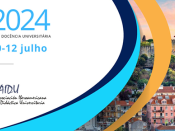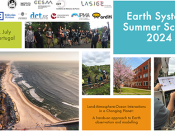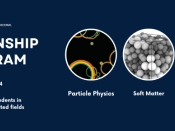Abstract
The Universe started off as a hot dense place, where free electrons locked photons in place. By about 400,000 years after the Big Bang, the Universe had expanded and cooled enough for electrons and protons to combine into hydrogen atoms and for photons to run free. The Universe became transparent, so we can look into the distance and thereby back in time. The light coming from that time has been stretched by the expansion of the Universe to microwave frequencies, thus its name Cosmic Microwave Background (CMB). The temperature of the CMB is uniform to a few parts in 10^5, which means that the Universe was remarkably smooth when the CMB was emitted. Since the first detection of the CMB in 1965, experimental advances have allowed us to observe these tiny fluctuations, which contain imprints of the processes that occurred from its emission until its detection. Among such processes is the weak gravitational lensing, which consists of the deflection of CMB photons by the mass of matter clustered along the line of sight. The study of these fluctuations provide our most detailed view of the large-scale properties of the Universe, such as its age, its density and its composition. This talk will cover the basic physics of the CMB, explain how we learn from it and show constraints from recent experiments.
Orador: C. Sofia Carvalho (CAAUL/DF)
Dia 18/12/2013, às 14h, no anfiteatro 1.4.14









